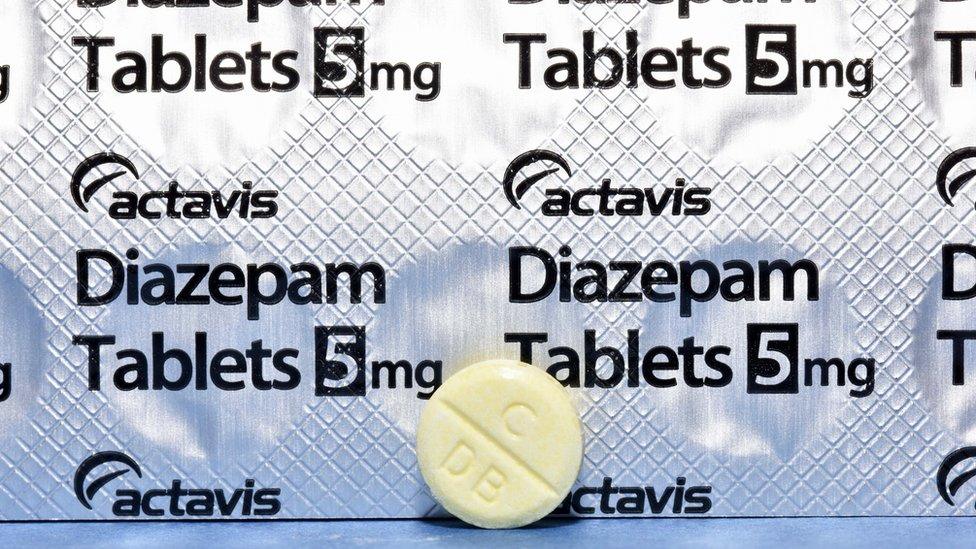Seizures of psychoactive drugs double in Scotland
- Published

Diazepam, a Class C drug, was among the 2.2 million psychoactive drugs seized by police
Seizures of diazepam and other benzodiazepines have almost doubled in the past two years in Scotland.
New figures showed that more than two million tablets, including Valium, were found by police.
Support agencies say that the class of psychoactive drugs known as benzodiazepines are too easy to obtain and can have deadly consequences.
The latest statistics also showed that cannabis, external remained Scotland's most seized drug in 2016/17.
In total, Police Scotland found 18,000 cannabis plants, approximately 8,600 ecstasy-type tablets and 2.2 million Class C drugs such as diazepam.
The quantity of Class A and B drugs seized was down from more than 1.2 tonnes in 2015-16 but the number of individual seizures of cocaine, ecstasy, heroin and cannabis increased from 3,376 to 3,399 between the years.
The National Statistics publication said: "The quantity of drugs seized can fluctuate considerably each year and does not necessarily move in line with the number of seizures made.
"Whilst most drug seizures consist of relatively small quantities (usually possession-related crimes), annual quantities of drugs seized can be greatly influenced by a small number of large seizures (usually from supply-related crimes)."
Analysis of records between 2014 and 2017 found that 49% of drug seizures took place in the street, with 28% in a house or garden.
Drug seizures are more common over the weekend, with Fridays and Saturdays accounting for 20% and 19% over the last three years.
The figures revealed that the vast majority (86%) of offenders were male with the average age of 29.
Following publication of the statistics, a spokesman for the Scottish government said: "Substance misuse devastates too many families and communities across the country. We want to address that and change the provision of treatment and support for those who are most at risk.
"That means taking forward evidence-led measures, even if they were to prove controversial."
The Scottish government is reviewing its current drugs strategy and will publish an updated approach in the summer.